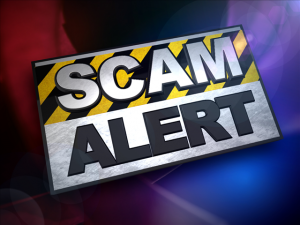
NEWS RELEASE: The Better Business Bureau Serving Western Virginia (BBB) warns consumers of new COVID-19 text messaging scams. BBB offers the following tips to help avoid falling victim to coronavirus smishing scams.
With 75% of consumers agreeing to receive Short Message Service (SMS) or text messages on mobile phones from brands, con artists are using the current health crisis as clickbait to enter malicious sites that can steal your information and money.
Residents of western Virginia received a SMS phishing scam, also known as smishing, encouraging mobile users to claim emergency money for groceries due to the current coronavirus outbreak with a shortened URL. BBB warns consumers to beware of these timely and tempting tech-savvy cons as scammers attempt to acquire personal information such as passwords, personal details, or credit card information by masquerading as a trustworthy company and government agencies. If the link is clicked, impostors could gain access to your email, bank, and other accounts or they sell your information to other scammers.
With a staggering 98% open rate and a 209% higher response rate than through phone, email, or Facebook, SMS message scams have massive potential for cons to be effective in deceiving consumers and capturing personal data. A recent report from MobileSQUARED, a mobile research firm, shows that 90% of SMS messages are read within three minutes. Consumers redeem SMS-delivered coupons ten times more than other types of coupons. With an estimated 3.5 billion people having smartphones with internet connectivity in 2020, a malicious link sent via SMS can yield the same result or worse if sent via email.
“While mobile device security systems are increasing in sophistication, scammers take advantage of new communication channels to trick us into giving personal information and money,” says Julie Wheeler, President and CEO of BBB Serving Western Virginia. “Some smishing links may take you to a spoofed website that looks real but isn’t,” says Wheeler.
How the Scam Works
SMS phishing uses cell phone text messages to deliver the bait to entice people into disclosing their personal information. Smishing attacks typically invite the user to click a link, call a phone number, or contact an email address provided by the attacker via SMS message. The victim is then invited to submit their private data or credentials to other websites or services. Due to the nature of mobile browsers, URLs may not be fully displayed, making it more challenging to identify an illegitimate login page.
Three ways to filter text messages or stop them before they reach you:
On your phone
Your phone may have an option to filter and block messages from unknown senders or spam. Here’s how to filter and block messages for iPhone and Android phones.
Through your wireless provider
Your wireless provider may have a tool or service that lets you block calls and text messages. Check ctia.org, a website for the wireless industry, to learn about the options from different providers.
With a call-blocking app
Call-blocking apps also let users block unwanted text messages. Go to ctia.org for a list of call-blocking apps for Android and iPhone phones. You can also search for apps online and check out the features, user ratings, and expert reviews.
What to do if you fall victim to a SMS scam
It’s important to realize your mistake and act as quickly as possible. Here are the steps you should take if you’ve fallen victim to a SMS scam:
- Contact your banking institutions to report fraud and cancel credit cards used for all transactions or connected to the mobile device
- Inform your cell phone carrier of the fraudulent number and incident
- Block the phone number from your phone
- Change your passwords on sensitive apps such as online banking, social media, and any other space with personal information stored
How to Report Spam Text Messages
If you get an unwanted text message, there are three ways to report it:
- Report it on the messaging app you use. Look for the option to report junk or spam
- Copy the message and forward it to 7726 (SPAM)
- Whether or not you’ve lost money, always report it to BBB Scam Tracker at BBB.org/ScamTracker



